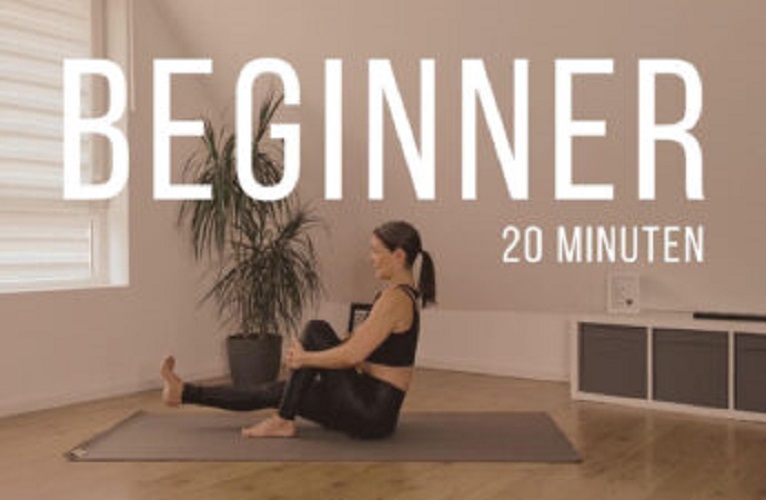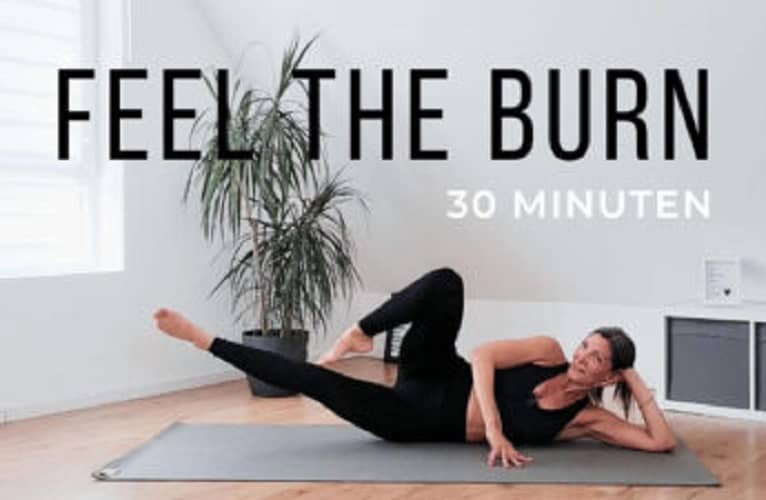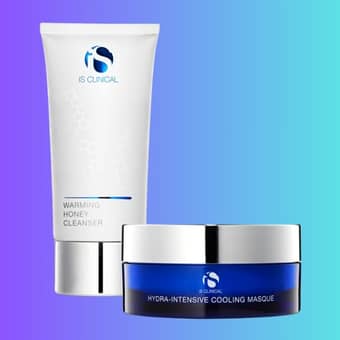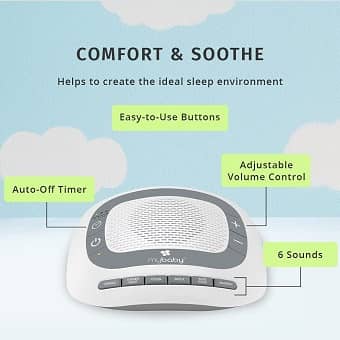As you stand in front of the mirror, do you often critique your body? Do you focus on its flaws and imperfections? You’re not alone. Low self-image is a heavy burden. It affects not only your confidence but also your well-being. But what if you could shift your focus from self-criticism to self-love? Pilates can be a powerful tool in helping you achieve that. Pilates can help you build strength, flexibility, and body awareness. It can help you have a better, kinder relationship with your body. This redefines your sense of identity.

Table of Contents
- I. Understanding the connection between Pilates and self-image.
- II. Types of Pilates exercises that boost self-image.
- III. Tips for Getting Started with Pilates for Self-Image Improvement
- IV. Step-by-Step Guide to Improving Self-Image through Pilates
- V. Factors that contribute to Pilates’ positive impact on self-image.
- VI. The Role of Mindfulness in Pilates and Self-Image
- VII. How Pilates Enhances Relaxation and Reduces Stress
- VIII. Prioritizing health and wellbeing through Pilates.
- IX. Common Misconceptions about Pilates and Self-Image
- X. Pros and Cons of Using Pilates for Self-Image Improvement
- XI. Real-Life Examples of Pilates’ Positive Impact on Self-Image
- XII. Maintaining motivation and consistency in your Pilates practice.
- XIII. Combining Pilates with other self-care practices yields optimal results.
- How Pilates changes your body’s perception and confidence.
- FAQ
Key Takeaways:
-
Body Awareness. Pilates increases body awareness. This can lead to a better self-image. By tuning into your body’s movements, you can better sense its abilities. This gives you more control and confidence. It’s also leads to a better self-view.
-
Mind-Body Connection: Pilates fosters a strong mind-body link. It’s a practice that promotes unity and harmony between the physical and mental. This merge can lead to a kinder relationship with your body. It’s going to improve your self-esteem and self-image.
-
Empowerment through movement: Pilates empowers people. It’s giving them a sense of pride in their physical abilities. As you master new movements and exercises, you gain confidence and self-efficacy. This leads to a more positive and resilient self-image. And it’s going beyond the Pilates studio.
I. Understanding the connection between Pilates and self-image.
Your sense of self stems from your physical and emotional health. When you feel strong, sure, and able, you’re more likely to show confidence and positivity. Pilates is a type of exercise. It’s revolutionizing your well-being. This, in turn, affects your self-image.
1.1. The psychological benefits of Pilates.

Pilates helps you connect the dots between your mind and body. It helps you develop more self-awareness, self-acceptance, and self-compassion. You focus on controlled movements and breathing techniques. This quiets your mind and brings calm, reducing stress and anxiety.
1.2. How Pilates Affects Body Perception
Pilates assumes you take a more mindful approach to your body. It encourages you to tune in to your physical sensations. You should honour your limits and celebrate your strengths. You begin to appreciate your body’s capabilities rather than criticising its appearance.
Pilates also helps you develop a more realistic and positive body image. It does this by promoting a sense of body ownership and empowerment. As you master new exercises and see your progress, you’ll start to view your body as strong. It’s capable and resilient, not flawed or inadequate.
II. Types of Pilates exercises that boost self-image.
Now that you know the benefits of Pilates for your self-image, let’s look at the types of Pilates exercises. They can help you become more confident and empowered.
-
Mat Pilates
-
Reformer Pilates
-
Private Pilates sessions
You will find that each type of Pilates exercise has its own unique benefits and advantages. Let’s break it down further.
| Types of Pilates | Benefits for Self-Image |
| Mat Pilates | Improves core strength, flexibility, and body awareness |
| Reformer Pilates | Tones and sculpts the body, improving posture and confidence |
| Private Pilates Sessions | It provides personalized attention, addresses specific body concerns, and boosts self-esteem |
| Barre Pilates | It combines elements of ballet and Pilates to improve posture, balance, and overall physical fitness |
2.1. Mat Pilates for Core Strength and Flexibility

That’s why mat Pilates is a great way to improve your core strength and flexibility. These can boost your self-image. Focus on controlled movements and deep breathing. They will make you more aware of your body. You’ll also develop a stronger sense of self.
2.2. Reformer Pilates for toning and sculpting.

Reformer Pilates is a great way to tone your body. It can sculpt you, leading to a more confident you. The reformer machine provides resistance. It helps you build strength and improve your fitness.
Reformer Pilates has another benefit. It can help you develop better posture. Improved posture transforms your perception of yourself. By strengthening your core and improving your posture, you’ll exude confidence and poise.
2.3. Private Pilates sessions for personalized attention.
Few people know this. Private Pilates sessions provide the attention you need. They can help with specific body concerns and boost your self-esteem. You’ll get one-on-one instruction. It’s going to give you tailored guidance and support. They will help you achieve your fitness goals.
Pilates instructors can help you find areas to improve. They can also create a workout plan that fits your needs and goals. This is a personalized approach. It’s can lead to a greater sense of accomplishment and confidence in your abilities.
III. Tips for Getting Started with Pilates for Self-Image Improvement
Again, the key to improving your self-image through Pilates is to have a clear mindset and a good plan. Here are some tips to get you started:
-
Finding a qualified Pilates instructor who understands your goals and needs.
-
Setting realistic goals and expectations for your practice.
-
Creating a consistent practice schedule that works for you.
-
Listening to your body and honoring its limitations
-
Focus on progress, not perfection.
The most important thing is to remember that Pilates is a journey, and it’s okay to take it one step at a time.
3.1. Finding a qualified Pilates instructor.
You want to find an instructor. They need the right qualifications to understand your goals and needs. Look for someone with experience working with clients like yours. Don’t be afraid to ask questions before committing to a class or session.
3.2. Setting Realistic Goals and Expectations

Start with small, achievable goals, and celebrate your successes along the way. This will help you stay motivated and encouraged throughout your Pilates journey.
For instance, if you’re new to Pilates, your goal might be to practice twice a week for 20 minutes. As you get stronger and more comfortable, you can practice more often and for longer. Realistic goals help you avoid frustration and disappointment. They let you focus on your progress.
3.3. Creating a Consistent Practice Schedule
Schedule your Pilates practice at the same time every week, so it becomes a habit. This could be in the early morning, during your lunch break, or before it’s bedtime. Do whatever works best for your lifestyle.
Make daily time for practice, no matter how brief. Consistency is key. It’s crucial for seeing progress and improvement in your self-image. Remember, every small step counts. Even a little practice can make a big difference in how you feel.
IV. Step-by-Step Guide to Improving Self-Image through Pilates
Many people have found that adding Pilates to their fitness routine has a big impact. It affects their self-image. Here’s a breakdown of how you can improve your self-image through Pilates.
| Type of Pilates | Benefits for Self-Image |
| Mat Pilates | Improves core strength, flexibility, and body awareness |
| Reformer Pilates | Tones and sculpts the body, improves posture and confidence |
| Private Pilates Sessions | Provides personalized attention, addresses specific body concerns, and boosts self-esteem |
| Barre Pilates | Combines elements of ballet and Pilates to improve posture, balance, and overall physical fitness |
4.1. Weeks 1–2: Building a Foundation and Confidence
Some people may find Pilates intimidating. This is especially true if they’re new to exercise or have never tried it before. But don’t worry. These first two weeks are for building your foundation and confidence. You’ll start to learn the basics of Pilates. This includes proper breathing, alignment, and movement. As you master these key skills, you’ll feel more confident. This confidence will help you in other parts of your life.
4.2. Week 3–4: Increasing Intensity and Challenging Yourself

On week three, you’ll start to notice that your workouts are becoming more challenging. This is a great sign! You’re pushing yourself to new heights and testing your limits. Be mindful that it’s okay to take it slow and change exercises that are too difficult. The goal is to challenge yourself, not push yourself too hard.
You built a foundation in weeks one and two. You’ll now see improvements in your strength, flexibility, and fitness. This will give you a sense of pride. It will boost your self-image.
4.3. Weeks 5–6: Refining technique and noticing progress
The intensity and difficulty will increase. But, you’ll start to refine your technique and see big progress. You’ll be able to do exercises with more accuracy and control. You’ll start to see the physical results of your hard work.
The last two weeks are for fine-tuning skills. You will also celebrate your achievements. You’ll feel a sense of pride and satisfaction knowing that you’ve worked hard to get to this point. Your self-image will keep getting better. You will see that you can overcome challenges and reach your goals.
V. Factors that contribute to Pilates’ positive impact on self-image.
To understand how Pilates boosts self-image, we’ve got to explore the causes.
-
Improved physical fitness
-
Increased self-confidence
-
Enhanced body awareness.
-
Better posture and alignment.
-
Reduced stress and anxiety.
These factors can combine. They can lead to a big change in how you see yourself and in your well-being.
5.1. Improved physical fitness.
The impact of regular Pilates practice on your physical fitness is undeniable. As you become stronger, more flexible, and more agile, you’ll see your health improve. This can boost your self-esteem and confidence. It makes you feel more comfortable in your own skin.
5.2. Increased Self-Confidence

Pilates helps you trust your body’s abilities. It lets you take on challenges you never thought were possible. This new confidence can help in other parts of your life. It can empower you to try new things and chase your goals with new excitement.
Pilates practice increases self-confidence. It’s due to the pride of mastering new exercises and techniques. As you progress in your practice, you’ll feel more capable and self-assured. This alters your perception of yourself.
VI. The Role of Mindfulness in Pilates and Self-Image
Other exercises focus on movement. Pilates adds mindfulness as a key part. This mind-body connection is necessary for promoting a positive self-image.
Practicing Pilates helps you develop mindfulness. It lets you build a closer bond with your body. This, in turn, can lead to a significant improvement in your self-image.
6.1. Reducing Stress and Anxiety through Mindful Movement

Pilates turns movement into meditation. It lets you quiet your mind and focus on the present. As you do the exercises, you’ll release tension and calm your nervous system. This will decrease stress and anxiety.
6.2. Cultivating body awareness and appreciation.
You start to tune in to your body’s subtle sensations. You become more aware of its abilities and limits. This greater body awareness fosters an appreciation and respect for your body. It replaces criticism and negativity.
Pilates encourages you to focus on the process, not perfection. As you progress, you’ll understand your body’s needs and strengths more. You’ll use this new appreciation in other parts of your life. It’s going to help you develop a more positive and caring self-image.
VII. How Pilates Enhances Relaxation and Reduces Stress
After a long day, you often find yourself feeling tense, anxious, and overwhelmed. This is where Pilates comes in. It strengthens your body and calms your mind. Adding Pilates to your routine. You can expect to feel more relaxed, centered, and in control.
7.1. The Science behind Pilates and Stress Relief

Any physical activity can help reduce stress, but Pilates takes it a step further. Research has shown that Pilates can lower cortisol, heart rate, and blood pressure. These are all signs of stress. Pilates also stimulates the production of endorphins. These are “feel-good” hormones, which reduce anxiety and depression.
7.2. Techniques for Promoting Relaxation and Calm
Science has proven that deep breathing can reduce stress. So can meditation and muscle relaxation. Pilates uses these techniques. It teaches you to focus on your breath, release tension, and engage your core. This promotes a sense of calm and relaxation.
Pilates exercises include the “hundred” and “teaser.” They must help you focus on your breath and use your core. This helps to calm the mind and release physical tension. As you do the exercises, you’ll become more aware of your body. You’ll also be better at releasing tense areas. This will lead to a deeper calm. With regular practice. You’ll find that you’re better able to handle stress and anxiety. You’ll feel more confident and in control.
VIII. Prioritizing health and wellbeing through Pilates.
Pilates improves your health. It reshapes your sense of identity. By adding Pilates to your routine, you’re choosing to focus on your well-being.
8.1. Focusing on personal health without guilt.
Healthy habits often come with a side of guilt or shame when we don’t meet our own expectations. Yet, Pilates encourages you to focus on your health journey. You do this without the burden of guilt. You’re not competing with others, and you’re not expected to achieve unrealistic goals. Instead, you’re working towards a stronger, more balanced you, at your own pace.
8.2. Noticing results without long strenuous workouts.

On the mat, you’ll feel accomplished and proud of your abilities. This is true even after a short, gentle session. This is because Pilates engages your core. It improves your posture and flexibility. It does this while being low-impact and accessible.
Pilates focuses on controlled movements and good alignment. It helps you build strength and endurance without straining your joints. As you progress, you’ll notice improvements in your fitness. They can be empowering and boost your confidence. By celebrating these small victories. You’ll build a more positive and kind relationship with your body.
IX. Common Misconceptions about Pilates and Self-Image
Keep in mind that many people misunderstand Pilates. These myths can hold you back from it’s great benefits for yourself.
9.1. Debunking the myth that Pilates is only for fitness enthusiasts.
The truth is, Pilates is not for fitness enthusiasts or athletes. It’s a low-impact exercise method. You can change it to suit your fitness level. This makes it accessible to everyone.

9.2. Understanding that Pilates is for every body type.
Enthusiasts of all shapes and sizes can enjoy Pilates. It’s not about being a certain weight or body type. It’s about gaining strength, flexibility, and body awareness.
For instance, Pilates can help you build a stronger core. A strong core can improve your posture and reduce back pain. This is true for all body types. It can also make you more flexible. This makes it easier to move and do daily tasks. Pilates focuses on your needs and goals. It’s able to help you build confidence and self-acceptance. This leads to a better self-image.
X. Pros and Cons of Using Pilates for Self-Image Improvement
To understand how Pilates can impact your self-image, you need to weigh the pros and cons.
| Pros | Cons |
|---|---|
| Improved posture and body alignment | Initial investment in classes or equipment |
| Increased strength and flexibility | Possible frustration with slow progress |
| Enhanced body awareness and mindfulness | Risk of injury if not performed correctly |
| Better balance and coordination | Time commitment required for regular practice |
| Reduced stress and anxiety | Unrealistic expectations from social media |
| Improved overall physical fitness | Lack of motivation or accountability |
| Increased confidence and self-esteem | Comparing yourself to others in class |
10.1. The benefits of improved physical fitness include increased confidence.
An improved physical fitness level can have a profound impact on your self-image. As you grow stronger, more flexible, and more confident, you’ll start to see changes. You’ll notice them in how you carry yourself and interact with others.
10.2. Potential Drawbacks and How to Overcome Them
Focusing too much on looks or comparing yourself to others can harm your self-image. It’s essential to approach Pilates with a growth mindset. Celebrate small victories along the way.
Potential drawbacks include frustration with slow progress or unrealistic expectations. You can beat them. How? Set real goals. Find support. Focus on the process, not the end. By doing so, you’ll be able to build a more positive and kinder relationship with your body. This will lead to a truer and more empowered sense of self.
XI. Real-Life Examples of Pilates’ Positive Impact on Self-Image
All it takes is a quick glance at the Pilates community to see the profound impact it can have on one’s self-image. Pilates practitioners from all walks of life have had a big boost in their self-esteem. It’s come from improved body awareness and enhanced confidence.
11.1. Success Stories from Pilates Practitioners
Pilates fosters self-awareness, empowering individuals to form optimistic self-perceptions. It has influenced their self-perception. You’ll find many testimonials from practitioners. They’ve overcome body dissatisfaction, embracing their unique shape and celebrating their strengths.
11.2. Overcoming Self-Doubt and Building Confidence

Pilates succeeds where other exercises fail. It empowers you to silence your inner critic. You replace it with a kinder, more encouraging voice. As you master new moves and challenge yourself, you’ll begin to trust your body and its abilities.
One key part of Pilates’ confidence-boosting effects is its focus. Controlled, precise movements control it. As you learn to do these movements with precision and grace, you’ll gain a sense of mastery and skill. These will help you far beyond the Pilates studio. You’ll carry this confidence into other parts of your life. You’ll face challenges with renewed assurance and poise.
XII. Maintaining motivation and consistency in your Pilates practice.
Pilates has many benefits. Yet, it’s common to experience ups and downs in motivation and consistency. You may feel enthusiastic and committed to your practice one day. But, you may struggle to stay on track the next time.
12.1. Tips for Staying Motivated and Engaged
To avoid this rollercoaster effect, incorporate the following tips into your Pilates routine:
-
Schedule your Pilates sessions on your calendar and treat them as non-negotiable appointments.
-
Vary your routine to avoid boredom and plateaus.
-
Find a workout buddy. Or, join a Pilates community for accountability and support.
-
Track your progress and celebrate small victories along the way.
-
Any small step towards consistency is better than nothing. Even a short 10-minute practice is better than skipping a day.
12.2. Strategies for Overcoming Plateaus and Setbacks

Setbacks and plateaus are a sure part of any fitness journey, including Pilates.
Plateaus can be frustrating. But, they’re also a chance to review your goals and approach. When you hit a plateau, try to identify the underlying cause. Is it due to a lack of challenge or variety in your routine? Have you been neglecting certain areas of your body? Identify the problem, then revise your approach to address it. This might involve asking an instructor for guidance. It could mean trying new exercises or props. Or, it could mean adding other exercises to your Pilates practice.
XIII. Combining Pilates with other self-care practices yields optimal results.
For best results, you must do Pilates. But, you must also engage in other self-care practices. These practices promote relaxation, self-awareness, and well-being.
13.1. Integrating meditation and yoga for their enhanced benefits.

Adding meditation and yoga to your Pilates routine can bring more calm and peace. These practices work together to calm the mind and relax the body. They also foster a deeper peace within. As you do Pilates, yoga, and meditation, it’s able to help you stay focused. They let you tap into your inner strength and confidence.
13.2. Using journaling and reflection to deepen self-awareness.
Deep insights often come from reflecting. You reflect on your thoughts, feelings, and experiences. By journaling and reflecting on your Pilates practice. You can gain a deeper understanding of your body, mind, and spirit.
Relaxation and introspection can help you tune into your inner wisdom. They let you identify patterns. They let you release your self-criticism. They let you grow a kinder relationship with yourself. As you reflect on your Pilates journey, you may find new strengths and abilities. You may also uncover aspects of yourself that you never knew existed. This discovery can lead to a more positive and empowered self-image.
How Pilates changes your body’s perception and confidence.
Taking this into account, Pilates transforms your self-perception. As you practice Pilates, you’ll notice your body’s abilities and limits. This will let you develop a kinder and more realistic view of yourself. You’ll feel stronger and more confident. You’ll also be more comfortable in your own skin. This can help in other areas of your life. By adding Pilates to your routine, you can cultivate a more positive sense of self. This will lead to a happier and healthier you.
FAQ
Q: How does Pilates help improve body awareness and self-acceptance?
Pilates helps improve body awareness. It does this by increasing mindfulness and connection with your body. Pilates uses gentle, flowing movements. They help you tune in to your breath, posture, and alignment. This lets you grasp your body’s abilities and limits. As you notice your body more, you’re more likely to develop a positive relationship with it. This leads to better self-image and confidence.
Q: Pilates fosters self-awareness, paving the way to positive body perception and esteem.
Yes, Pilates can help reduce body dissatisfaction. It can also cut down on negative self-talk. Pilates focuses on building strength, flexibility, and control. It helps you feel empowered and accomplished. As you see your abilities improve, you’re more likely to shift focus from flaws to strengths. This leads to a more positive and compassionate self-image. Also, Pilates’s mindfulness can quiet negative self-talk. It replaces it with positive, affirming thoughts.
Q: How does Pilates promote a sense of self-care and it’s self-love?
Pilates promotes self-care and self-love. It does this by providing a safe, nurturing space. Encourage yourself to focus on your well-being in this space. By taking time for yourself to do Pilates, you’re sending a powerful message. It says that your health, happiness, and self-worth are important. Also, Pilates is gentle and low-impact. This makes it suitable for all ages and abilities. It lets you focus on self-care and self-love, not competition or comparison. As you connect more with your body and mind, you’re more likely to love and accept yourself. These go far beyond the Pilates studio.
Last Updated on April 4, 2025 by Holistic Healths





